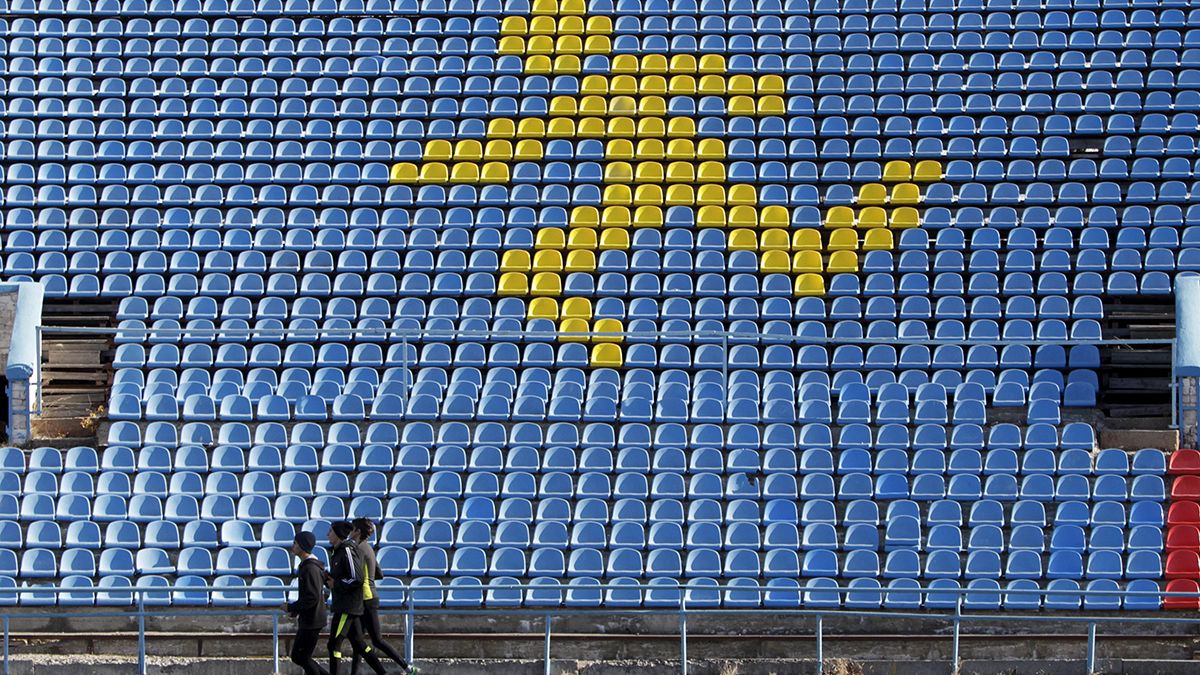The damning report from the World Anti-Doping Agency (WADA) could draw in other Russian sports which used the same laboratory which now stands
The damning report from the World Anti-Doping Agency (WADA) could draw in other Russian sports which used the same laboratory which now stands accused of covering up positive test results.
The allegations of drug-taking in athletics is already the biggest sporting scandal to hit Russia in decades.
But if the doping scandal snowballs to include other sports, it could cut even deeper into Russian pride which in the past few years had been riding high after a run of sporting successes.
WADA has signalled in the past that it had concerns about the laboratory’s work outside of athletics.
Before the Sochi Games, it demanded the lab made improvements to its procedures.
So why are the allegations only emerging now?
And how can international athletics win back trust?
Euronews has been speaking to Barrie Houlihan, who is Professor of Sport Policy at Britain’s Loughborough University.
Q. Professor Houlihan, the scale of these latest allegations would suggest that surely they must have been known about?
A: I think you’re right but I think the problem is gathering evidence to support the suspicions. I’m sure there have been suspicions about the Russian Federation for quite some time, that on the International Federation’s website the Russian athletes have always been either the largest or the second largest number of athletes on periods of suspension, so there has always been an awareness of a problem, but as I say it’s gathering the evidence to support the suspicions which is a challenge, particularly in country where you need a visa to gain entry so that if doping control officers want to go into the country to test athletes out of competition it is very difficult for them to do that wiithout an advanced warning being given to the athletes.
Q: Of course the polemic, the posturing, the politics have just begun, the Kremlin spokesman saying that until there is that evidence that you talk about, the accusations are groundless and what we forget here is that caught in the middle are the athletes – both those athletes that are accused of doping but, probably more importantly, those athletes who are clean.
A: I think the question with regard to Russian athletes is how much choice did they have in relation to whether they accepted being part of this corrupt training programme? We know from the history of the German Democratic Republic that athletes had little or no choice, that they were put through a doping programme prior to going to competition and it was very difficult for an athlete to refuse.
Q. If you put the politics aside surely this is evidence yet again that sport is completely incapable of policing itself, that it’s got to be strong, that reform has got to come from within?
A: You’re exactly right. If we look at international federations they are peculiar organisations. It’s hard to think of any other sphere of business or organisational activity where we allow a global monopoly to exist and this is what the international federations are. If you want to play football, if you want to do track and field, you do it through the relevant international federation. Who are they accountable to? Notionally they are accountable to their member states but it’s a fiction. They are, I think, unaccountable organisations and it’s an easy breeding ground for corruption.
Q: Athletes themselves have quite a job to do. They have to win our trust back?
A: If we’re looking to solutions to this problem then it might come indirectly from sponsors leaving the sport. What’s attractive about sport and particularly track and field is its associations with excitement, with youth and with fairness and good quality competition. Now if sport wants to protect its brand and maintain that flow of sponsorship, of broadcasting rights, it’s got to invest more in anti-doping. It’s got to see that protecting the integrity of the sport is good for their business.
